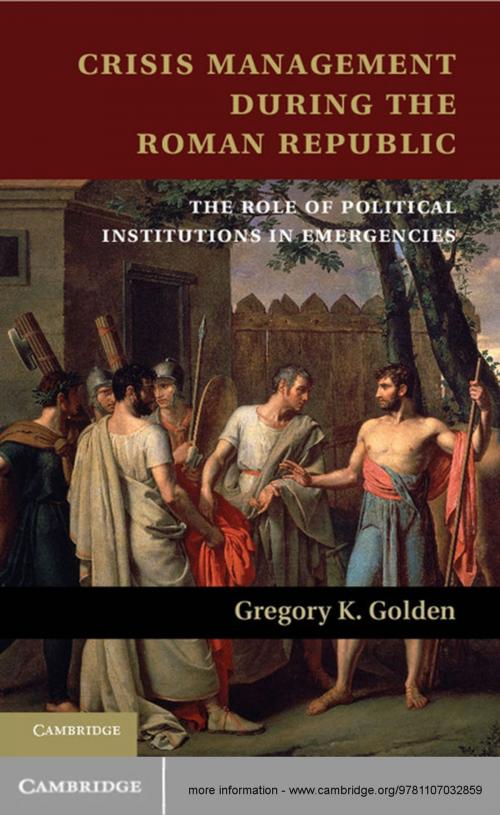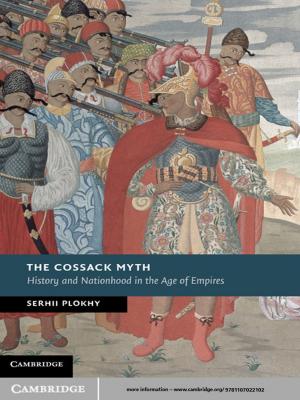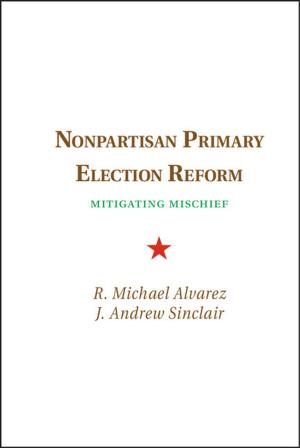Crisis Management during the Roman Republic
The Role of Political Institutions in Emergencies
Nonfiction, History, Ancient History, Social & Cultural Studies, Political Science| Author: | Gregory K. Golden | ISBN: | 9781107065512 |
| Publisher: | Cambridge University Press | Publication: | April 22, 2013 |
| Imprint: | Cambridge University Press | Language: | English |
| Author: | Gregory K. Golden |
| ISBN: | 9781107065512 |
| Publisher: | Cambridge University Press |
| Publication: | April 22, 2013 |
| Imprint: | Cambridge University Press |
| Language: | English |
'Crisis' is the defining word for our times and it likewise played a key role in defining the scope of government during the Roman Republic. This book is a comprehensive analysis of key incidents in the history of the Republic that can be characterized as crises, and the institutional response mechanisms that were employed by the governing apparatus to resolve them. Concentrating on military and other violent threats to the stability of the governing system, this book highlights both the strengths and weaknesses of the institutional framework that the Romans created. Looking at key historical moments, Gregory K. Golden considers how the Romans defined a crisis and what measures were taken to combat them, including declaring a state of emergency, suspending all non-war-related business, and instituting an emergency military draft, as well as resorting to rule by dictator in the early Republic.
'Crisis' is the defining word for our times and it likewise played a key role in defining the scope of government during the Roman Republic. This book is a comprehensive analysis of key incidents in the history of the Republic that can be characterized as crises, and the institutional response mechanisms that were employed by the governing apparatus to resolve them. Concentrating on military and other violent threats to the stability of the governing system, this book highlights both the strengths and weaknesses of the institutional framework that the Romans created. Looking at key historical moments, Gregory K. Golden considers how the Romans defined a crisis and what measures were taken to combat them, including declaring a state of emergency, suspending all non-war-related business, and instituting an emergency military draft, as well as resorting to rule by dictator in the early Republic.















